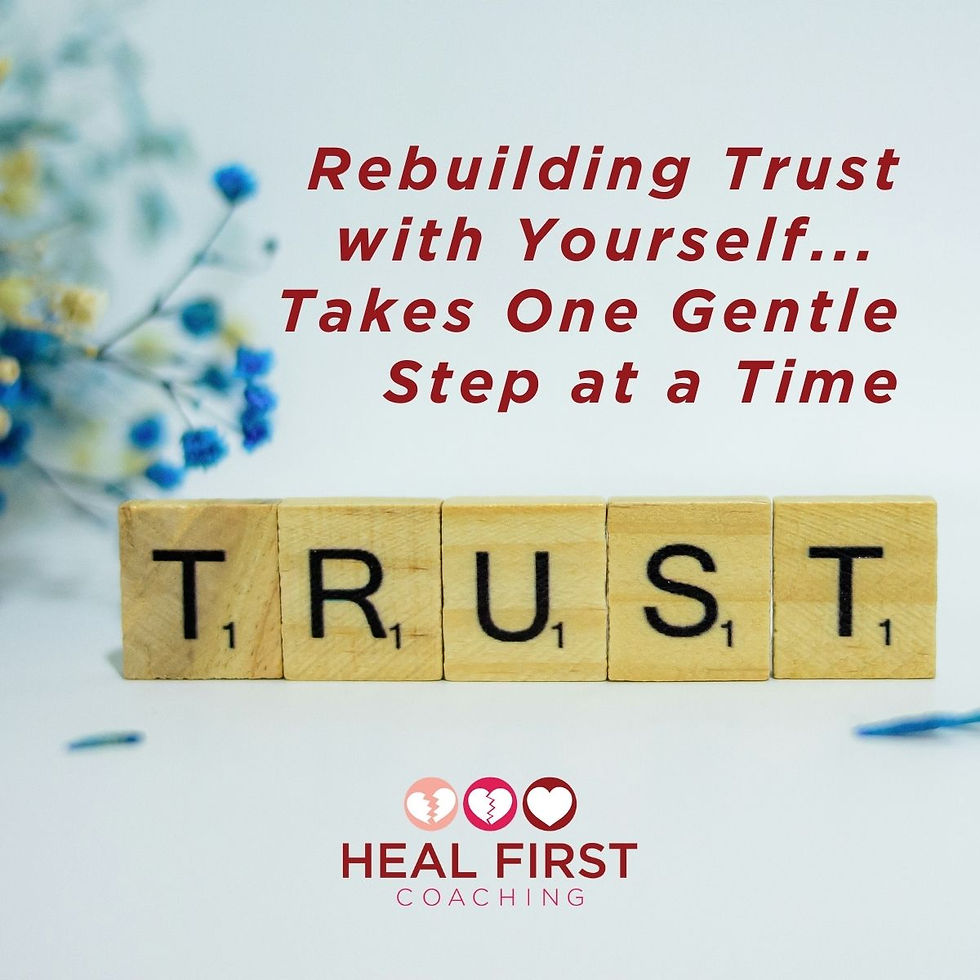Essential Tips for Dating With Kids After Divorce
- Samantha Tishner

- Jul 23, 2024
- 4 min read

When "Sarah" decided to start dating again after her divorce, she quickly realized that her kids’ feelings were just as important as her own. It’s vital to navigate this new chapter with care, ensuring you’re emotionally ready while also considering your children’s needs. How you manage introductions and maintain boundaries can greatly impact everyone involved. Understanding the balance between your dating life and family dynamics is critical, but where do you even begin to establish that balance?
Key Takeaways
Ensure emotional readiness by processing your divorce and enjoying life independently before dating again.
Prioritize your children’s emotional security, validating their feelings and adapting to their needs during the transition.
Keep dating separate from family life, scheduling dates when children are not present to maintain stability.
Introduce new partners gradually, starting with low-pressure meetings to ease children’s acceptance and reduce confusion.
Focus on self-care and build a support network to manage stress and maintain emotional well-being while parenting.
Assessing Your Readiness
Before you plunge into the dating pool again, it’s essential to assess your emotional readiness and guarantee you’ve truly processed your divorce.
Take time to reflect on your feelings; signs of readiness include no longer ruminating daily about the past and being able to enjoy life independently.
Emotional healing is crucial, as seeking a new partner solely for self-esteem boosts can indicate unpreparedness.
Instead, focus on developing a positive outlook and excitement about getting to know someone new.
Engage in activities that foster connections with friends, as these healthy relationships can further demonstrate your readiness for dating.
Understanding Children’s Needs
When steering through the world of dating after divorce, it’s essential to prioritize your children’s emotional needs, ensuring they feel secure and valued during this change.
Children may face emotional challenges like jealousy or insecurity upon hearing about new partners. It’s vital to validate their feelings and encourage open discussions.
Depending on their age, younger children might adapt quickly, while teenagers may need more reassurance and time to accept your new relationship.
Timing is key when you introduce a new partner; gauge your children’s emotional readiness to minimize confusion.
Separating Dating and Family Life
To create a stable environment for your children, it’s essential to keep your dating life distinct from family life as they adjust to the changes after your divorce.
Schedule dates during times when your kids aren’t around; this helps prevent feelings of disruption or jealousy regarding a new relationship.
Focus on maintaining clear boundaries between your family responsibilities and your dating life, ensuring your children always feel prioritized.
It’s perfectly okay to enjoy a good time and meet someone new, but privacy in dating should be prioritized until you’re sure about the relationship’s seriousness.
This approach allows for a smoother shift, helping both you and your kids feel secure while you navigate your new chapter.
Managing Partner Introductions
Creating a positive experience for your children when introducing a new partner can greatly ease the adjustment process after divorce. Start with short, casual meetings in low-pressure public settings, allowing your children to feel comfortable without the weight of expectations.
Encourage open communication about their feelings; let them express any concerns or discomfort regarding the new partner. As acceptance grows, you can gradually increase interactions and involve your children in planning shared activities, fostering a sense of control.
Remember to limit the number of new partners introduced to prevent confusion and emotional turmoil. Prioritizing meaningful relationships over casual dating will help your children adjust better and build trust in this new chapter of your lives.
Prioritizing Self-Care and Support
Prioritizing self-care and support is essential for parents steering through the challenging waters of dating after divorce, as it not only enhances your emotional well-being but also allows you to be more present for your children and new relationships.
Engaging in regular exercise and mindfulness practices can help manage stress and foster emotional resilience.
Build robust support networks with friends, family, or support groups to share experiences and relieve pressure.
Set realistic goals each day, incorporating self-care activities like hobbies or relaxation techniques, which can boost your sense of accomplishment.
If you’re feeling overwhelmed, seeking professional help can provide valuable guidance in maneuvering through emotional distress and co-parenting challenges, ultimately benefiting both you and your children.
Frequently Asked Questions
How to Start Dating After a Divorce With Kids?
Starting to date after divorce with kids involves taking time for yourself, understanding your emotions, and communicating openly with your children. Gradually introduce new partners, ensuring they feel secure and loved during the process.
What Is the Hardest Age on Kids for Divorce?
Research shows kids aged 6 to 12 often struggle the most during divorce, facing insecurities and fear of losing parental love. It’s essential to support them emotionally, helping them navigate their feelings during this challenging time.
How Long After Divorce Should Kids Meet New Partner?
You should wait at least six months to a year after your divorce before introducing your kids to a new partner. This guarantees everyone’s emotional healing and helps your children feel secure and prioritized in their lives.
How Do You Spend Time With Kids After Divorce?
Think of your time with kids as planting seeds in a garden. You nurture them with consistent routines and quality moments. Schedule fun activities, listen to their feelings, and prioritize one-on-one time to help them flourish.
Conclusion
As you step back into the world of dating, imagine a garden—nurturing your own growth while gently tending to your children’s feelings.
With patience and care, you can create a vibrant space where love can blossom anew.
Remember, it’s okay to take small steps; each thoughtful choice you make helps build a strong foundation for both your heart and your family.
Embrace this journey, knowing that with time, understanding, and support, brighter days are ahead for everyone.




Comments